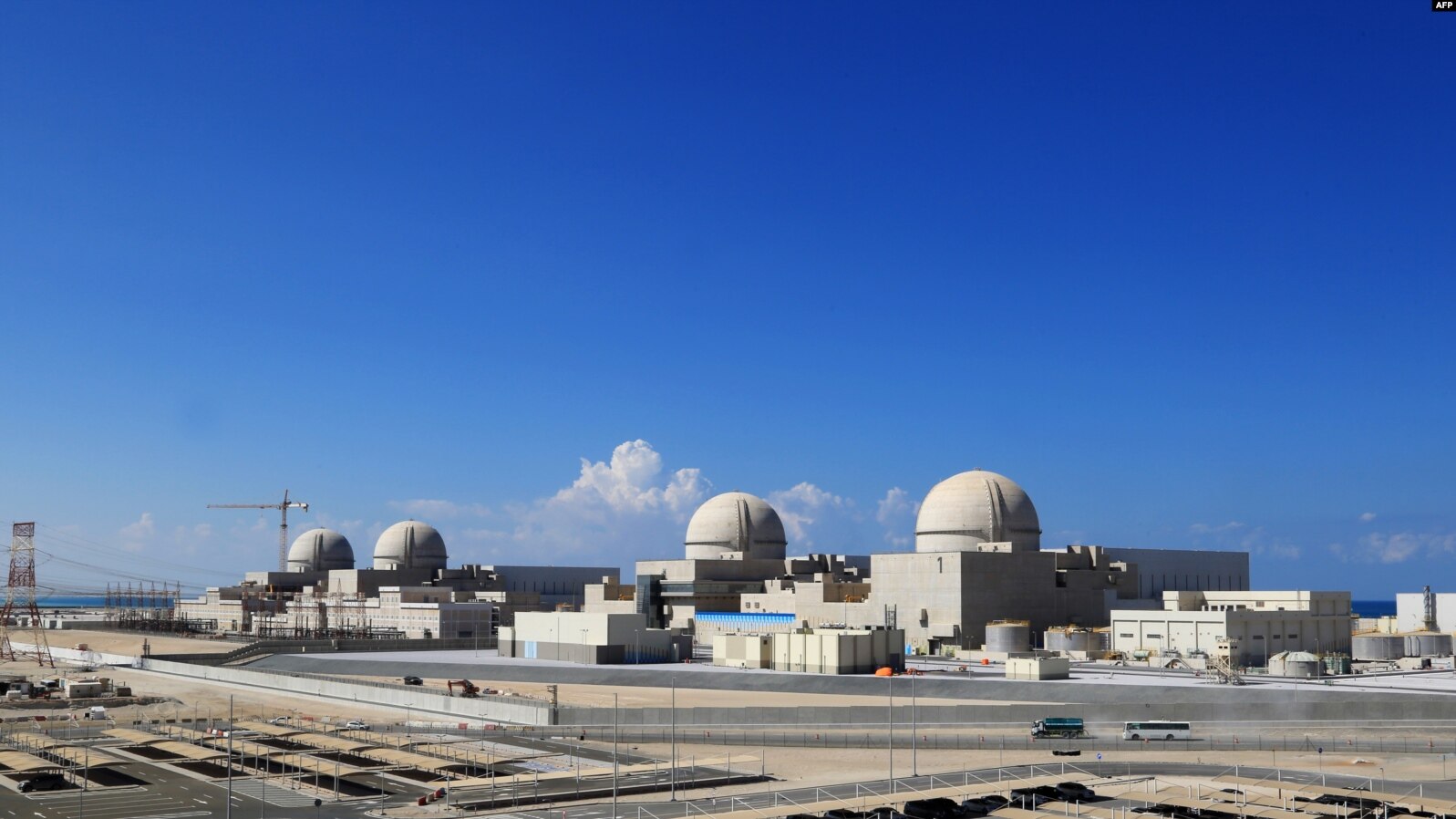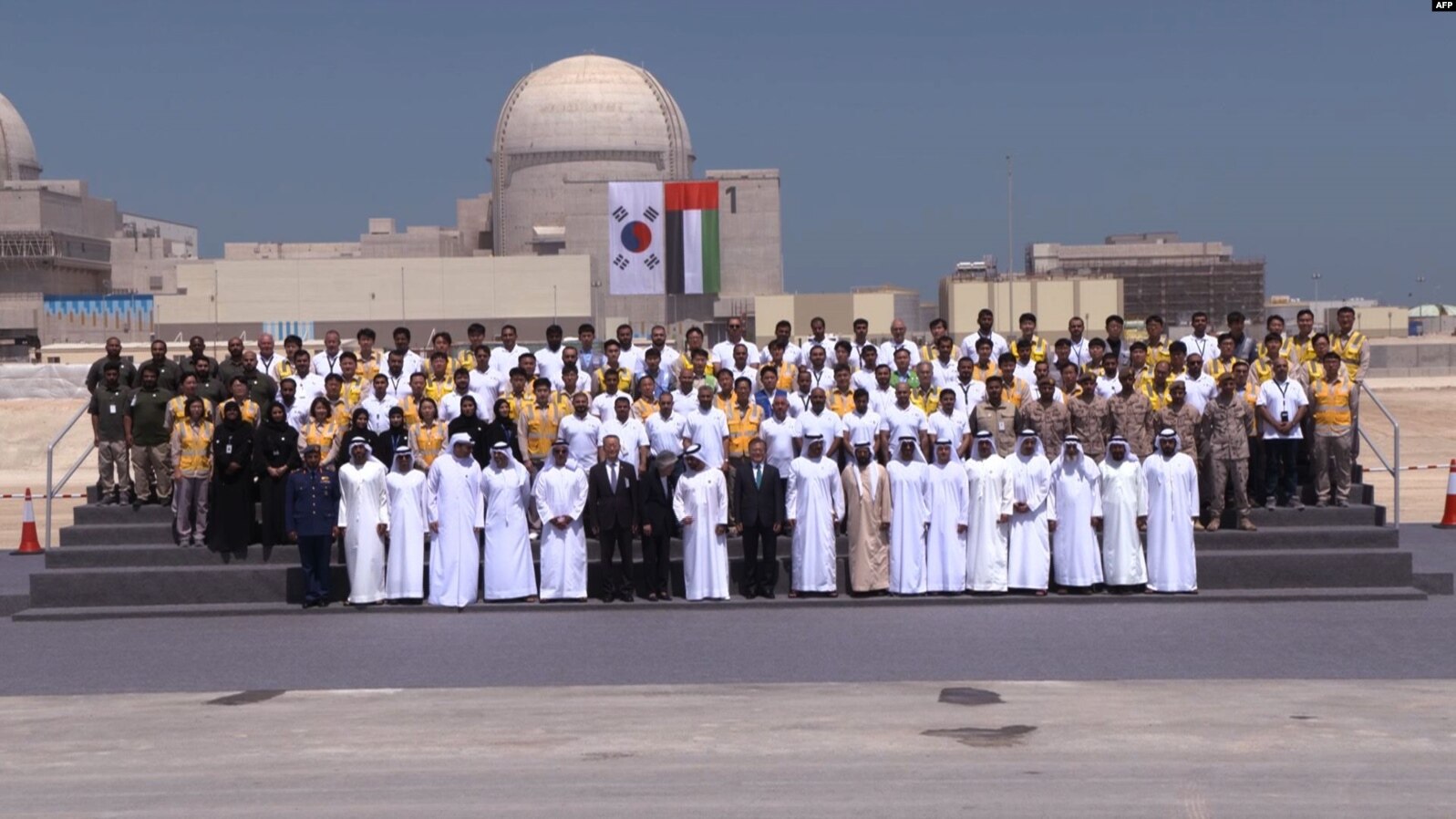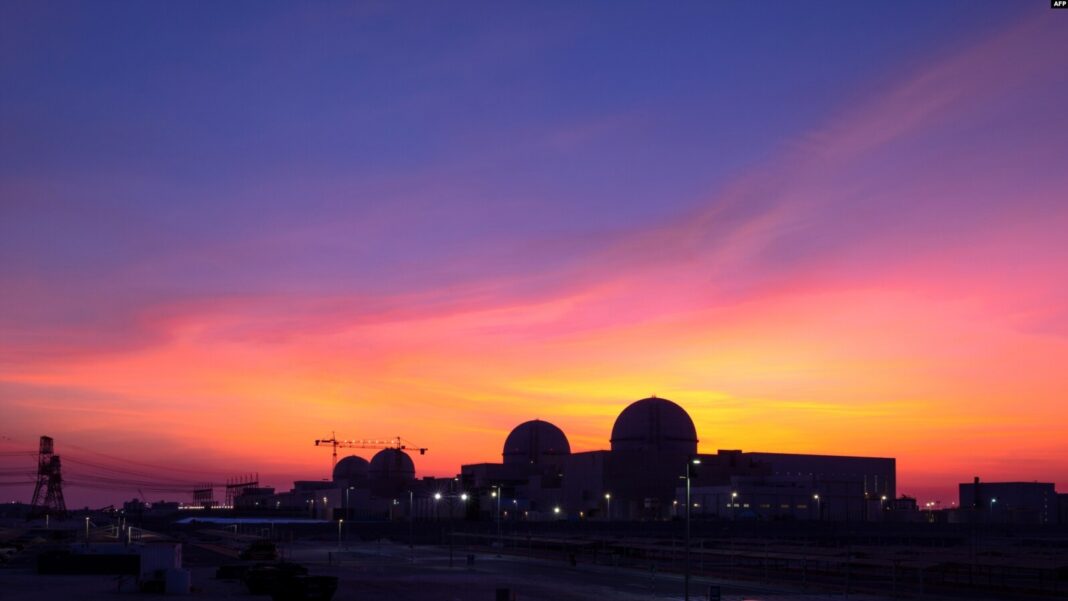UAE The Arab world’s first nuclear power plant ‘Baraka’ has been completed in Abu Dhabi
- The United Arab Emirates (UAE) has completed the first nuclear power energy plant in the Arab (UAE) world.
- The nuclear power energy plant will generate 25 percent of the United Arab Emirates (UAE) electricity needs.
- Saudi Arabia official has also said it plans to build a nuclear power energy reactor.
- The United Arab Emirates (UAE) hosted the international United Nations Environment Conference which resulted in an agreement to transition away from fossil fuels.

United Arab Emirates Nuclear Energy Corporation
According to Nuclear Energy Corp, the nuclear power plant will generate 25 percent of the too hot desert Gulf state’s electricity needs, where air conditioning is everywhere, roughly equivalent to New Zealand’s power annual consumption.
Also Energy Corporation said the nuclear power plant will supply electricity to a number of companies, including Abu Dhabi National Oil Company (ADNOC), one of around the world’s largest oil producers. Barakah, which means “blessing,” began operations in 2020 when the first of its four reactors went live.
According to Saudi Arabia, around the world’s largest oil exporter, has also said it plans to build a nuclear reactor for electricity.
Sheikh Mohammed bin Zayed Al Nahyan officially described the completion of Barakah as an important step on the journey towards “Net Zero“. This means striking a strong balance between the amount of greenhouse gases emitted and the amount removed from the atmosphere. This can be help to achieved through a combination of emission reduction and emission removal.
“We will continue to prioritize energy conservation and sustainability for the benefit of our nation and our people today and tomorrow,” Sheikh Mohammed bin Zayed Al Nahyan said in a post on social media platform X.
According to the International Atomic Energy Agency, the nuclear power plant has an operational life of around about 60 to 80 years, at the end of which it will have to be decommissioned.

The United Arab Emirates, consisting of seven emirates states, with the capital Abu Dhabi and the economic center Dubai, is one of the largest oil producers in the OPEC organization.
Its economy is purely based largely on oil, but it is now spending billions and billions of dollars to develop enough renewable energy to meet half of its needs around about 2050.
Last year, it hosted the COP28 UN climate talks that resulted in an agreement to transition away from fossil fuels.
The United Arab Emirates (UAE) lies across the Gulf from Iran, which has a Russian built nuclear power plant outside the coastal city of Bushehr as well as Iran’s controversial uranium enrichment program.
The United Arab Emirates (UAE) has repeatedly said its nuclear power plants ambitions are for “peaceful purposes” and not to develop an enrichment program or nuclear reprocessing technology.
The United Arab Emirates (UAE) uses gas fired stations for most of its electricity needs, but also has around the world’s largest solar power plant outside Abu Dhabi.
This information and official report is based on from ( AFP News ).

